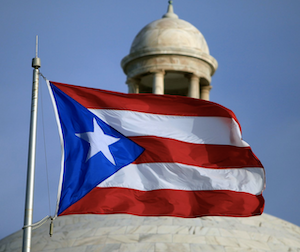The year was 1917 — the Panama Canal had been opened a mere three years, in April 1917 the United States entered World War I, and in March the Jones Act granted American citizenship to the citizens of Puerto Rico. 1917 was also the year that the U.S. Congress passed the little-noticed “Rum Cover-Over” as way to help the new island Commonwealth of Puerto Rico develop much-needed infrastructure by transferring back to Puerto Rico federal excise taxes on rum produce in Puerto Rico.
We are now 117 years later, and what was designed as a temporary tax rebate to help the newly acquired and at the time largely undeveloped island of Puerto Rico get on its feet following the Spanish-American War, is still with us; illustrating the adage that “temporary” tax measures are rarely, if ever, truly temporary.
In fact, the rum tax “cover over” was broadened in 1954 to include the U.S. Virgin Islands, to help fund infrastructure projects on those islands.
These tax rebate projects in recent years do little, if anything, to assist either Puerto Rico or the U.S. Virgin Islands build schools, roads, or power plants. What the revenue measures have done, is to greatly benefit private distilleries, including Diageo and Bacardi, that produce rum in these Caribbean locales, including by subsidizing major expansion of such facilities.
Don’t get me wrong, I enjoy a good rum drink from time to time, but where is the economic justification in this year 2024, for the governments of Puerto Rico and the U.S. Virgin Islands to be benefitting from federal excise tax refunds which can total hundreds of millions of dollars per year, which in turn are paid back to the rum distilleries as subsidies?
As noted in an analysis of the rum cover-over program, the governments in both Puerto Rico and the U.S. Virgin Islands have in recent years manipulated this federal tax rebate program — having it serve to divert money to some of the world’s largest rum-producing companies, such as Bacardi. In turn, the companies expand their distilling capacity, thereby increasing their rum output, which results in receiving a larger percentage of the “cover-over” excise taxes. All of which, by the way, distorts the markets in ways that do not always or necessarily help the local economies in either Puerto Rico or the Virgin islands.
Everybody directly involved, however, makes out handsomely, except, of course, for U.S. taxpayers, who are indirectly paying for the tax dollars lost by virtue of the rum rebates.
There have been previous efforts in Congress to put a halt to the rum cover-over handouts, but none have secured the public interest or the votes to withstand the lobbying effort that invariably comes with such corporate largesse.
The indestructible nature of tax benefit programs like the rum cover-over, is reflected in the fact that, in the current, 118th Congress, the only bill that would impact the rum cover-over program – H.R. 3146 – would actually increase the rebates and at the same time direct that a portion go to funding certain green, “sustainable agriculture” programs in Puerto Rico.
Perhaps a lame duck session of Congress would provide cover for the House to at long last jettison this corporate welfare program as part of a massive budget reconciliation package. If not, the rum cover-over program will remain a shining example of crony capitalism at its best – or worst.
Bob Barr represented Georgia’s Seventh District in the U.S. House of Representatives from 1995 to 2003. He served as the United States Attorney in Atlanta from 1986 to 1990 and was an official with the CIA in the 1970s. He currently serves as President of the NRA, and practices law in Atlanta, Georgia, where he also heads Liberty Guard.
